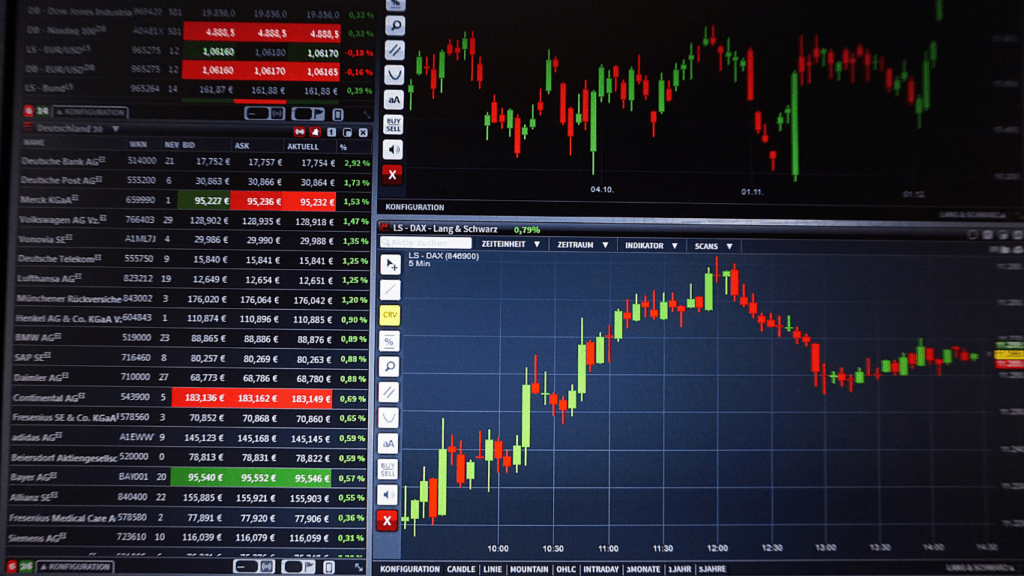Navigating the dynamic landscape of the wheel betting industry, I’ve witnessed firsthand the profound impact regulatory changes can have on market dynamics. As regulations evolve, market players must swiftly adapt to stay ahead in this competitive arena.
In this article, I delve into the intriguing realm of market reactions to regulatory shifts within the wheel betting sector. From sudden policy amendments to anticipated regulatory updates, each change reverberates through the industry, shaping investor sentiment and market trends.
As a seasoned observer of market fluctuations, I’ll explore how these regulatory ripples influence stock prices, investor confidence, and overall industry performance. Join me as we uncover the intricate dance between regulations and market responses in the ever-evolving wheel betting landscape.
Overview of Wheel Betting Industry Regulations
Exploring the regulatory landscape is crucial in understanding market dynamics in the wheel betting industry. Regulations play a pivotal role in shaping the operational environment for companies, influencing investor behavior, and ultimately impacting the industry’s performance.
As a seasoned industry analyst, I delve into the intricate web of regulations governing wheel betting activities and their cascading effects on market reactions. Regulatory changes can trigger a domino effect, causing fluctuations in investor sentiment and stock prices.
By staying abreast of regulatory developments, market players can proactively adjust their strategies to mitigate risks and seize opportunities arising from evolving policies. Understanding the interplay between regulations and market responses is essential for stakeholders aiming to navigate the intricate terrain of the wheel betting industry.
The regulatory framework encapsulating the wheel betting sector is multifaceted, encompassing licensing requirements, consumer protection measures, and compliance standards. As regulatory bodies refine and enforce these guidelines, market dynamics often experience shifts, influencing investor confidence and market valuations.
Adapting to regulatory changes is not merely a regulatory compliance exercise but a strategic imperative for industry participants seeking sustainable growth and competitive advantage. In this ever-evolving regulatory landscape, market participants must maintain a proactive approach, anticipating and adapting to regulatory changes to stay ahead of the curve.
By closely monitoring regulatory updates, market players can assess the potential impact on their operations, make informed decisions, and position themselves strategically in response to evolving regulatory dynamics. Navigating the regulatory maze in the wheel betting industry requires vigilance, agility, and a deep understanding of the regulatory ecosystem to effectively manage market reactions and harness opportunities for growth.
Historical Regulatory Changes Impacting Wheel Betting Market
Exploring the historical regulatory changes that have impacted the wheel betting market sheds light on the industry’s dynamic nature and the factors influencing market reactions.
Analysis of Market Reactions to Past Regulatory Adjustments
Reflecting on past regulatory adjustments in the wheel betting sector reveals valuable insights into how market participants respond to changes in the regulatory landscape. By studying these reactions, I can better understand the ripple effects of regulatory decisions on investor sentiment, stock prices, and overall market performance.
Current Regulatory Landscape in the Wheel Betting Industry
Exploring the current regulatory landscape in the wheel betting industry reveals a dynamic environment shaped by evolving policies and standards. Regulatory frameworks play a pivotal role in influencing the operational landscape for industry stakeholders and shaping investor behavior.
As market players navigate this intricate web of regulations, understanding the key aspects of the current regulatory landscape is crucial for adapting strategies effectively.
Key Regulatory Components:
- Licensing Requirements: Obtaining the necessary licenses is fundamental for wheel betting operators to ensure compliance with regulatory authorities. Failure to meet licensing requirements can lead to penalties, operational disruptions, and loss of investor confidence.
- Consumer Protection Measures: Regulatory guidelines often include provisions aimed at safeguarding consumer interests, such as promoting responsible gambling practices. Compliance with these measures is essential for maintaining trust with customers and upholding industry integrity.
- Compliance Standards: Adherence to regulatory compliance standards is a non-negotiable aspect of operating in the wheel betting industry. Meeting these standards not only ensures legal compliance but also fosters a culture of transparency and accountability.
Impact on Market Dynamics:
The regulatory landscape can act as a catalyst for market shifts, influencing investor sentiment, stock prices, and overall industry performance. Changes in regulations have the potential to trigger a chain reaction within the market, impacting various stakeholders.
Proactive Approach to Regulatory Changes:
Staying informed about regulatory developments empowers market participants to proactively adjust their strategies, mitigate risks, and capitalize on emerging opportunities. By closely monitoring regulatory updates and anticipating potential changes, industry players can position themselves strategically in response to evolving policies.
Understanding the nuances of the current regulatory environment is paramount for market players seeking to navigate the wheel betting industry successfully. By embracing a proactive approach and embracing regulatory changes as opportunities for growth and adaptation, stakeholders can effectively manage market reactions and drive sustainable development in this dynamic sector.
Recent Regulatory Modifications and Their Effects on Market Dynamics
Exploring recent regulatory modifications in the wheel betting industry unveils crucial insights into how these changes influence market dynamics and investor behavior. By analyzing the swift adaptation of market players to these alterations, a clearer picture emerges of the intricate relationship between regulations and market reactions within this sector.
Examining the impact of these regulatory adjustments on the wheel betting industry’s operational environment provides valuable perspectives on how companies navigate shifting landscapes. Understanding how licensing requirements, consumer protection measures, and compliance standards evolve can significantly influence investor confidence and market sentiment.
The evolving regulatory framework acts as a cornerstone for market shifts, dictating investor perceptions and influencing overall industry performance. By proactively adjusting strategies to align with these regulatory changes, stakeholders position themselves to effectively manage market reactions and drive sustainable development within this dynamic sector.





